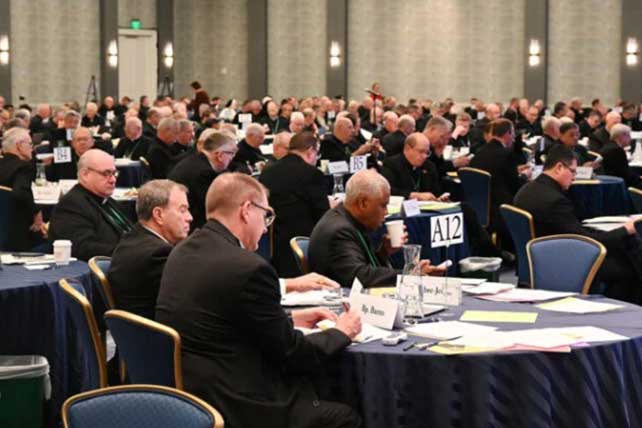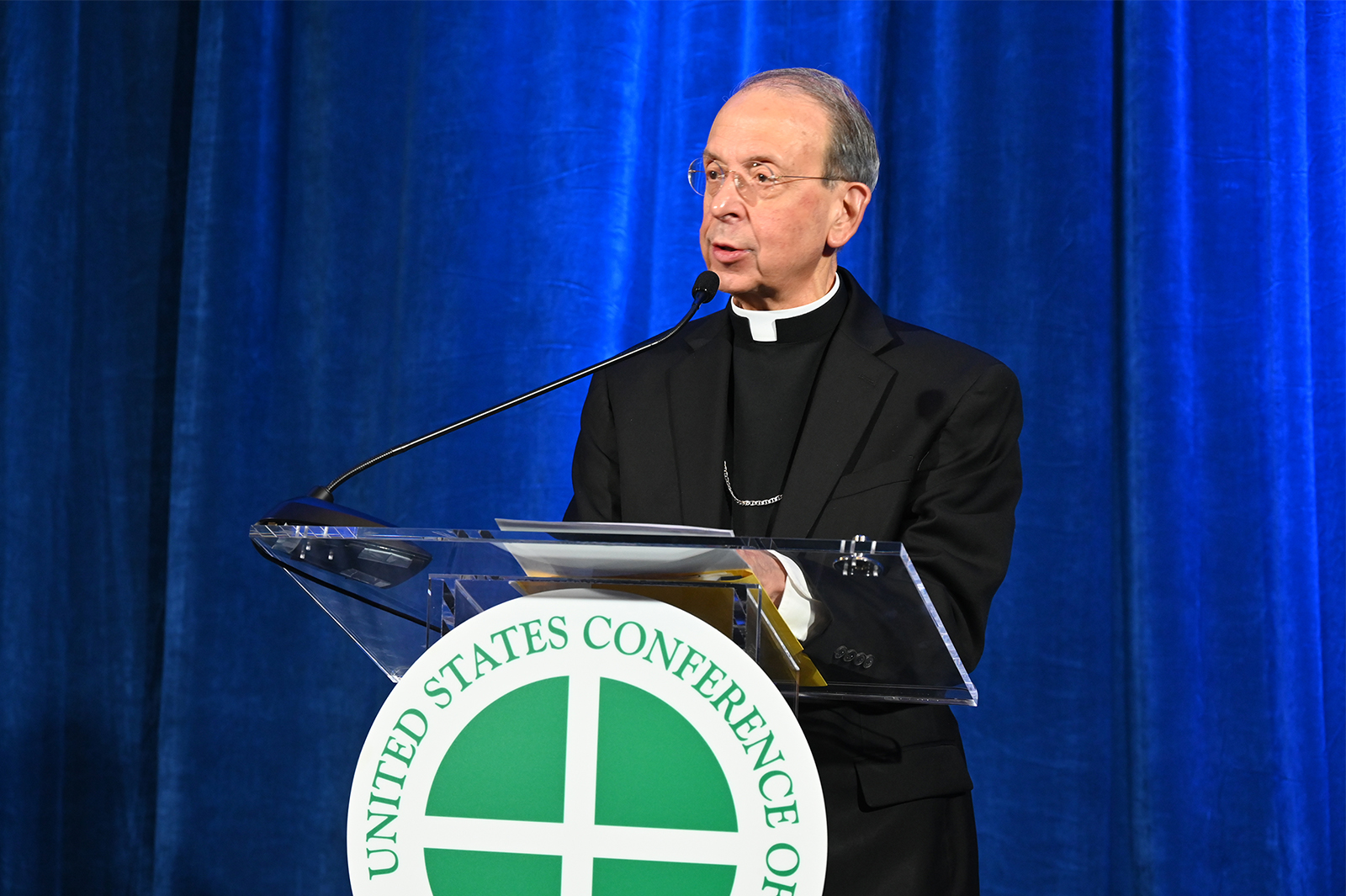Some criticized the document for placing a particular priority on abortion compared with other issues, such as the threat of global climate change. Bishop John Stowe, who oversees the Diocese of Lexington, Kentucky, lamented that climate change received “nowhere near the emphasis it should” in the document.
Stowe said he found the treatment of climate change especially galling given that last month Pope Francis published “Laudate Deum,” an update to his 2015 encyclical on the environment. In his new letter, the pontiff declared climate change to be “one of the principal challenges facing society and the global community,” and he singled out the United States as a nation where emissions per individual are especially high.
“The fact that we can’t even bring up the issues that are timely for this election, or the urgency of them — it’s baffling,” Stowe told Religion News Service.
RELATED: Survey: US Religious Groups Do Not View Climate Change as a Crisis
Asked during a news conference about concerns regarding the treatment of climate change in the document, Baltimore Archbishop William Lori, who oversaw the working group that crafted the new materials, noted that bishops overwhelmingly approved the measure on Wednesday, with 225 voting in favor and only 11 voting no (seven abstained).
He then explained that the reason bishops so prioritize “the unborn as we do is because they are utterly voiceless and defenseless and abortion is a direct taking of human life.”
Baltimore Archbishop William Lori speaks to the media during the annual fall meeting of the U.S. Conference of Catholic Bishops, Nov. 15, 2023, in Baltimore. (RNS photo/Jack Jenkins)
Those involved view climate change differently, he said.
“The effects of this are indirect rather than direct,” he said, referring to climate change. “That does not make them less serious. It, however, does affect how we have weighed in things.”
The gathering was also the first USCCB meeting since Pope Francis convened the Synod on Synodality at the Vatican in October, the seminal event in an ongoing multiyear process instituted by the pontiff. The summit, which included both bishops and laypeople, was meant to mull the future of the church and reflect a vision rooted in communion and participation.
Participants who had attended the synod spoke warmly of it before the assembly, although some observers — including America Magazine, a Jesuit publication — noted that Pierre and Broglio appeared to disagree over how much work Catholics in the U.S. have to do to fully embrace synodality.
“The call to synodality, an essential means of spreading the gospel in today’s world, has also been working its way through the church,” Pierre said. He then cited the synod’s findings: “We have an important opportunity to reflect on the assembly’s questions and proposals in a ‘climate of mutual listening and sincere dialogue.’”
Broglio, by contrast, said the gathering helped him reflect on “the many synodal realities that already exist in the church in the United States.”
This article originally appeared here.


